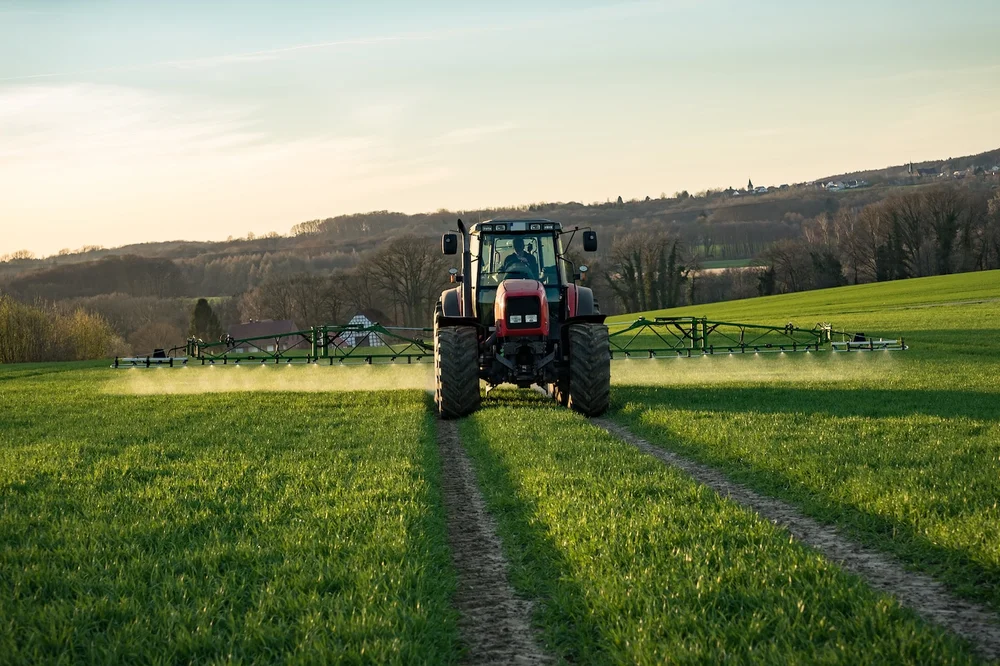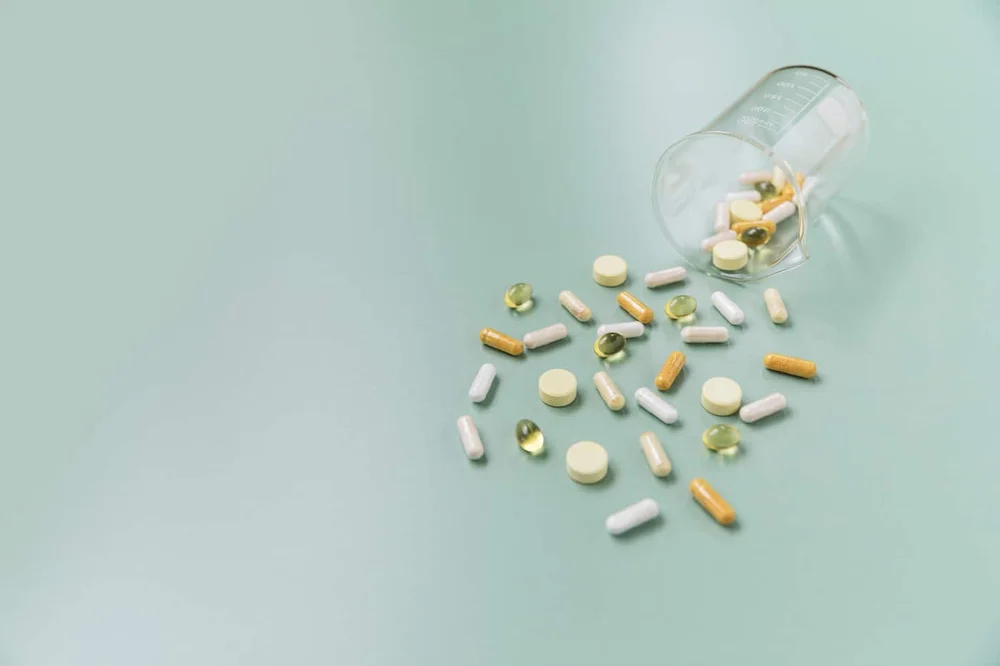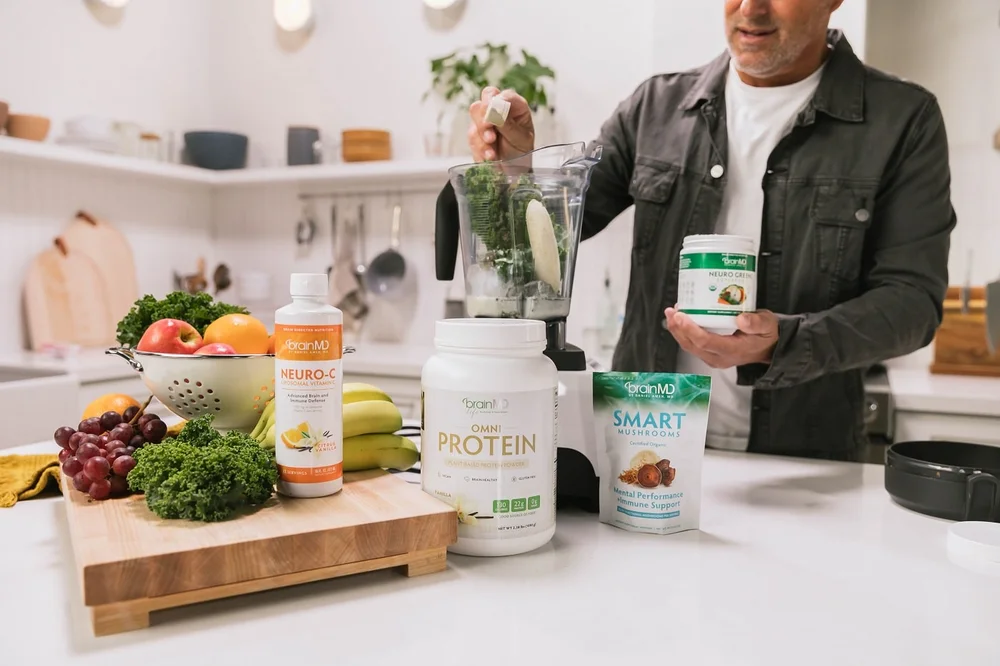What is Glyphosate and Is It Harmful to My Health?
Medically Reviewed by Dr. Nicole Avena
Did you know you might be consuming a potentially harmful substance with every bite you take?
Glyphosate, a commonly used herbicide, has sparked controversy and raised concerns about its presence in our food supply. As this debate continues to gain momentum, it’s crucial to dig deeper and unravel the true extent of glyphosate’s effects on our health.
How harmful is glyphosate? Let’s explore the impact this controversial chemical may have on our well-being.
From farm to fork, it’s a topic that affects us all, so let’s dig in!
What is Glyphosate?
Glyphosate, the active ingredient in Roundup, is the most widely used herbicide in the world. Typically used in agriculture and lawn care, it’s effective at killing broadleaf weeds and grasses, however, it’s also been linked to several health concerns.
Critics of glyphosate argue that it’s a carcinogen and endocrine disruptor. Glyphosate also has been linked to kidney issues, reproductive problems, and birth defects.
Due to the conflicting and inconclusive evidence, it’s still unknown if glyphosate is harmful to human health. However, many health experts believe it’s best to err on the side of caution and avoid exposure to this chemical whenever possible.

History of Glyphosate in Our Foods
Glyphosate has been a registered pesticide in the U.S. since 1974. Use of this common pesticide has increased exponentially in recent years due to the widespread adoption of genetically engineered crops.
While glyphosate is considered safe by many regulatory bodies, growing evidence suggests it may be harmful to human health. Glyphosate has been linked to a number of health problems, including hormone disruption and reproductive problems.
In 2015, the International Agency for Research on Cancer (IARC) classified glyphosate as a “probable human carcinogen.” This classification was based on limited evidence from epidemiological studies, which showed an increased risk of non-Hodgkin’s lymphoma in people exposed to glyphosate.
Another study found that exposure to glyphosate may increase the risk of premature death. The study showed that people with high levels of glyphosate in their urine had a significantly increased risk of dying from any cause over the next 20 years, compared to those with lower levels of glyphosate in their urine.
There’s also evidence linking glyphosate to hormone disruption and reproductive problems. Studies have found that glyphosate may interfere with the endocrine system and disrupts the hormones involved in reproduction and development. Alarmingly, one study found that low doses of Roundup (a formulation of glyphosate) created high incidences of birth defects in frog and chicken embryos.
Sources of Glyphosate in Our Foods
There are several sources of glyphosate in our food supply. Some of the most common include:
- Non-organic Soybeans: According to the U.S. Environmental Protection Agency (EPA), glyphosated soybeans are the predominant type of soybean grown in the U.S. The USDA estimates that over 90% of soybean acres were treated with glyphosate between 2006-2012.
- Corn: Glyphosate is commonly used as a pre-harvest desiccant on corn, meaning it’s sprayed on the crop to dry it out prior to harvest. This practice is controversial, as it increases the risk of glyphosate residue contamination in maize products.
- Canola: Like soybeans, glyphosated varieties of canola are widely planted in North America. In Canada, over 90% of canola farms use glyphosate herbicides.
- Fruits and Vegetables: Glyphosate is sometimes used as a pre-harvest desiccating agent on fruits and vegetables such as apples, pears, potatoes, and tomatoes. While this practice isn’t widespread, it does increase the likelihood of residue contamination in these foods.
Best Ways to Avoid Glyphosate in Foods
Though it may be impossible to completely rid your diet of glyphosate, here are some top tips for how to avoid exposure to these toxins in your foods:
- Check labels carefully for the presence of glyphosate or other herbicides.
- Buy organic foods whenever possible.
- Wash fruits and vegetables thoroughly before eating them.
- Avoid processed foods and eat whole, unprocessed foods whenever possible.
Stay Informed About Glyphosate
Glyphosate has become a controversial issue when it comes to our food supply. With its potential health risks and environmental impacts, many are calling for stricter regulations of this chemical and greater transparency from companies who use it in their products.
As consumers, we can demand safer alternatives and learn more about how this prevalent herbicide is impacting our environment and our health. By staying informed on these issues, we can make better decisions regarding what we consume and support responsible manufacturers that don’t use glyphosate in their production processes.
Hopefully this article has provided some basic information about glyphosate. As research on this pesticide continues, we’ll get a more accurate picture of its potential impact, whether negative or not, on human health.
At BrainMD, we’re dedicated to providing the highest purity nutrients to improve your physical health and overall well-being. For more information about our full list of brain healthy supplements, please visit us at BrainMD.
These statements have not been evaluated by the FDA. This content is for informational purposes only. It is not meant to substitute for medical or healthcare advice from a physician, nor is it intended to diagnose, treat, cure, or prevent any disease. Consult your healthcare provider before beginning a new health regimen.
- This Is What You Need to Know About HBOT
Medically Reviewed by Dr. Nicole Avena - April 22, 2024 - Hormone Changes in Men: How to Know If You Have Low Testosterone! - April 15, 2024
- This Is What You Need to Know About EMDR Therapy! - April 11, 2024




What about the presence of glyphosate in wheat and wheat products? It is my understanding that the crops are sprayed with this poison before harvest.